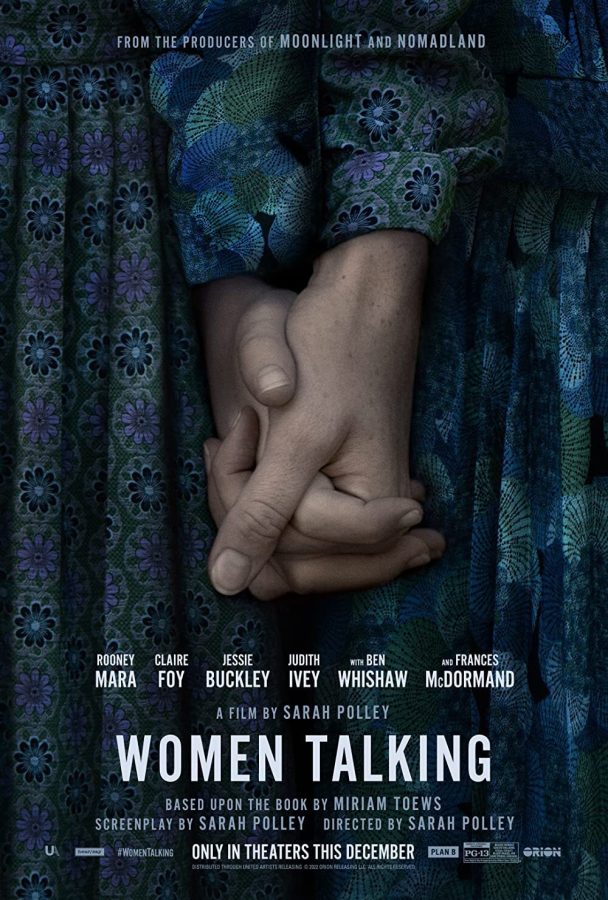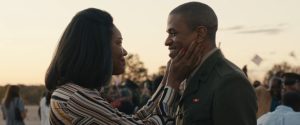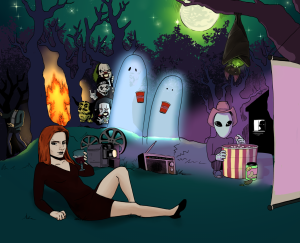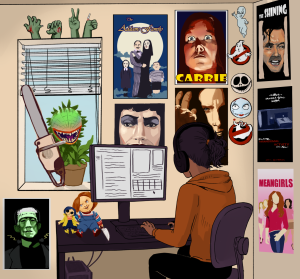Director Sarah Polley talks ‘Women Talking,’ collaborating with predominantly female team
November 1, 2022
CW: sexual violence, gender-based violence
Adapted from a novel of the same name by Miriam Toews, “Women Talking” portrays a group of Mennonite women meeting in secret to devise a plan for protecting themselves and their daughters after learning men in their community repeatedly drugged and raped them. The film, based on a true story, took to the Austin Film Festival screen ahead of its theatrical release in December.
The Daily Texan sat down with director Sarah Polley to discuss adapting the 2018 novel, working with a predominantly female cast and crew and navigating conversations surrounding sexual violence.
The Daily Texan: What compelled you to adapt Toews’ novel into a movie?
Sarah Polley: I read it when it came out, and it just went through me like a bullet. It rocked me in the best possible way. There have been so many conversations in the media, and in our world about gender-based violence and sexual assault and harassment. It wasn’t Miriam’s intention that the book be released right on the heels of the #MeToo movement, but that’s what happened. We were all going through real feelings of grief, rage, sadness and unearthed trauma … and what was amazing about this book is it made me curious about the bigger questions around it, the way through it, the way forward and how to process these things in community — to have a productive, hopeful lens on it in the form of this fable that Miriam created was thrilling.
DT: You collaborated with so many women on this film, including Frances McDormand who took on the role of actor and producer on this project. What did collaboration with your female cast and producers look like, and how did it cause your script to evolve?
SP: (This film) was the result of many conversations with lots of different women. That conversation began with me, Fran and Dede (Gardner), and it often encompassed Miriam as well. I would bring in her to talk about certain ideas. As I was turning out drafts of the script, Dede, Fran and I would be in big conversations that went into how we interpreted the book, but also how we saw the world, our lives and our histories. That sense of conversation then extended itself into the rehearsal process, and with the cast.
DT: With a cast consisting of women of many different ages, how were cast discussions about sensitivity and boundaries handled?
SP: One of the more lovely things to witness as a director was seeing the way people were taking care of each other. Younger women had all of these older women who were incredibly supportive to them. We also had an onset therapist for the more difficult scenes, and she was available to us and to the cast whenever they needed her, as well as being an important resource in terms of understanding what these women would be going through psychologically. It was really important to me that there be an environment where people could be exploring this stuff safely, because inevitably, it was going to be difficult for a lot of people on set.
DT: How did you decide on the film’s narrator?
SP: We knew we wanted (the narrator) to be a woman. Christopher (Donaldson) came in and said, ‘what if it’s actually the youngest woman in the room?’ Also, Kate kept drawing me in when we were shooting. I kept thinking, ‘How do I make her more central?’ Everyone was so drawn to her performance and what she was bringing into the room, so suddenly, we found that pathway of this becoming a story through her perspective, which felt really important in terms of imagining the future and imagining a way forward.
DT: How did current conversations surrounding sexual violence and the #MeToo movement influence your script?
SP: Inevitably, it did. That’s been in the air for the last four or five years or longer. What was interesting about the frame of this story, which is sort of in the realm of a fable, is you could ask the trickier, more nuanced questions: What does individual guilt mean, versus societal guilt, versus institutional guilt? How are we raising people, and what can we expect of people if they’re being raised in a patriarchal society, and how can we move forward? How can we change and shift things? What do we want to build, not just what we want to destroy?














